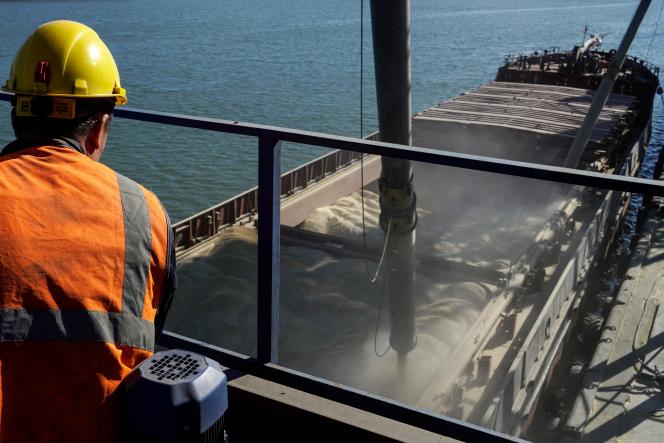Sunday, June 26, Russia was likely to default. Historically, the moment is significant, since it is a first since the great crisis of 1998. But the effect should be very limited. “The economic impact is unlikely to be major,” said Joseph Marlow of Capital Economics, a research firm.
Since the start of the invasion of Ukraine on February 24, the Russian government has already been largely cut off from the international financial system, as a result of Western sanctions. “A declaration of default would be a symbolic event, but the Russian government has already lost the ability to issue debt in dollars,” said Takahide Kiuchi, an economist at the Nomura Research Institute.
The process towards default began on May 27, when Moscow missed a $100 million (about 94.7 million euros) bond repayment deadline. The countdown to the thirty-day grace period then began, expiring on June 26. The Russian government says it has the money and wants to pay, but is stuck because of the sanctions. To show his goodwill, he paid the sum in rubles to the National Settlement Depository, a Russian organization through which the money must pass. As this is on the sanctions list, the transfer to Western creditors is blocked.
strange situation
Moscow therefore blames Western countries: “Everything indicates that by artificially blocking the Russian Federation from servicing its foreign debt, the objective is to affix the label of ‘default’ to us”, explains Anton Silouanov, the Minister of Finance. You can declare whatever you want (…), but those who understand the situation know that it is not a defect. »
This strange situation is a reminder that, despite particularly heavy sanctions, Russia has succeeded in stabilizing its financial system and its economy. Four months after the start of the war, “Russia has a lot of cash that it can’t spend,” even noted Elina Ribakova, an economist at the Institute of International Finance (IIF), an American association representing the finance industry.
At the start of the invasion, the central bank doubled its interest rate to 20% and imposed severe capital controls. The interest rate is now back to 9.5%, its pre-war level. Gradually, capital can circulate more freely. Russian companies that export no longer have to convert their foreign currency into rubles, as was the case at the start of the conflict.
The main explanation for this stabilization is that Russia continues to sell its oil, gas and raw materials. Exports are a bit more difficult than before, but prices have risen so much that incomes are rising. At the same time, imports have become very difficult, with Western companies refusing to sell to Russia, either directly because of the sanctions or voluntarily. As a result, Moscow finds itself with a record current account surplus, which has more than tripled compared to 2021.
“About $300 billion in Russian Central Bank reserves have been frozen, but Russia could receive about $300 billion for its energy exports in 2022,” notes an IIF report, co-authored by Ms. Ribakova. Russia is therefore rapidly rebuilding its financial capacity.
Not that the sanctions were useless. The IIR predicts a 15% recession in Russia this year. In the absence of imports, many industries live on their stocks. Car companies are closing one after another; airlines, whose fleets are mostly made up of Boeing and Airbus, no longer receive spare parts; major container companies retreated, slowing trade.
Redirect your sales
But for Ms. Ribakova, originally from Latvia and an expert on Russia, the current sanctions are now insufficient. “They are not going to stop the war in Ukraine. Certainly, they impose a cost on Russia, but, as they stand, they will not make it possible to end the conflict. According to her, faced with Moscow, which has been able to adapt, the West must react: “The sanctions must be adjusted, in a kind of horrible game of chess. »
On Sunday, the United Kingdom, the United States, Japan and Canada announced a ban on buying Russian gold. But the real next step is going to be the moratorium on Russian oil, which the Europeans must put in place by the end of the year. Here too, the difficulties are obvious. Russia can, at least partially, redirect its sales to China and India. According to the calculations of the IIF, between the pipelines that go to China and the ships that can transport their cargoes elsewhere, Russia has enough to compensate for 40% of the European embargo. Adding to this a possible price increase, which would work in favor of Moscow, the impact will be far from negligible, but it will be insufficient to bring the Russian economy to its knees. The great morbid chess game of sanctions is likely to go on for a long time.


















